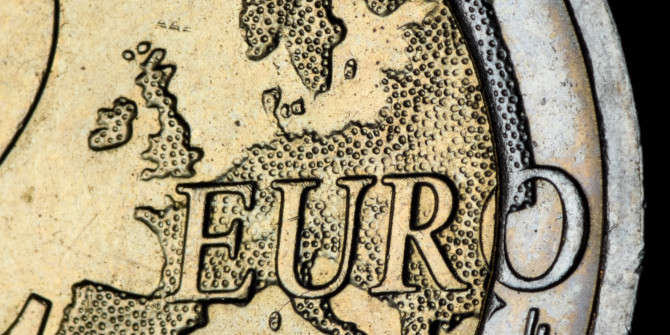
 What impact is the UK’s EU referendum likely to have on Italian politics? Bruno Marino and Nicola Martocchia Diodati see few chances for the referendum to reinforce the position of pro-EU parties in Italy, irrespective of its outcome. With Euroscepticism on the rise in Italy, even a win for the Remain campaign could bolster stances critical of further European integration. They argue that the only possible outcome that could benefit the pro-EU camp is one through which the values of unity and solidarity are highlighted.
What impact is the UK’s EU referendum likely to have on Italian politics? Bruno Marino and Nicola Martocchia Diodati see few chances for the referendum to reinforce the position of pro-EU parties in Italy, irrespective of its outcome. With Euroscepticism on the rise in Italy, even a win for the Remain campaign could bolster stances critical of further European integration. They argue that the only possible outcome that could benefit the pro-EU camp is one through which the values of unity and solidarity are highlighted.
What impact would a Brexit have on Italian politics? As Eleonora Poli stated in a previous post, if ‘the UK decided to push for further opt outs from the EU then current Italian support for European integration would certainly come under pressure’. But what kind of pressure are we talking about in this context and what would be the consequences for Italy as a whole?
In recent years, levels of support for European integration have declined even in Italy, a country which was traditionally seen as one of the most pro-EU member states. This tendency clearly manifested itself during the 2014 European Parliament elections, when parties like the Lega Nord and the Five-Star Movement, categorised in the Chapel Hill expert survey as having very critical views of the European Union, had a very strong showing.
How can a Brexit referendum affect Italian politics? It is possible to give a snapshot of the consequences by sketching some possible scenarios. When these scenarios are considered, it is likely that, regardless of the final decision that will be taken by the British people, a Brexit referendum will help anti-EU and Eurosceptic actors in developing their discourse in the Italian political arena.
Italy and the UK’s referendum: possible scenarios
A first possibility is that the UK votes to leave the EU. Apart from the foreseeable adverse economic consequences of such a scenario, this will also mean that the debate concerning the European Union will assume an even more central role in Italian political discourse. Italy’s Eurosceptic parties could push more fervently for a decision on the country’s EU membership. It is not difficult to imagine the possible rhetoric that could be employed, where it could be argued that ‘if even the UK has decided to leave the EU, why should Italy be held back?’
Even though a legally binding referendum on Italy’s membership of the EU cannot be held under the Italian Constitution, a constitutional law issuing an advisory referendum on this topic could still be passed by the parliament. Such a referendum would not have direct legal or international consequences, but its political outcomes are more difficult to imagine.
What could pro-EU parties do in such a setting? The simple answer is almost nothing. They would probably stress that the UK was never part of the Eurozone, and that this is an obvious difference between the two countries. Nonetheless, the simple fact of being bound to Europe not only by the European Union but also by the euro could make Italy appear, in the eyes of a number of Italian citizens, as being in need of a ‘UK-style’ change. Even if Italy cannot simply decide to exit from the European Union out of the blue, a Brexit scenario would thus have dire political consequences in Rome.
Obviously, the UK referendum could also maintain the status quo: the UK stays in the EU. Even if this could be seen as a victory for pro-EU Italian parties, it may actually cast some shadows over their pro-European rhetoric. Pro-EU parties would almost certainly underline the fact that even the UK, a country that has always had a ‘strange’ relationship with the EU, has decided to stay within the European construction. Why would Italy start a dangerous and unpredictable journey into the darkness?
While this argument may seem fairly solid at first glance, there are a number of serious flaws. A UK within the EU but outside the euro may foster requests for withdrawing from the single currency by some Italian parties. This is not an impossible scenario to imagine, since even now the Lega Nord is vocally opposed to the euro and the Five-Star Movement is proposing an advisory referendum on the issue. All in all, Eurosceptic and anti-EU positions in Italian politics could become stronger whether the UK decides to stay in the EU or to leave it.
Is it then really impossible for a Brexit referendum to end up strengthening the pro-EU discourse in Italy? The only weapon in the hands of pro-EU parties is the community-related dream that formed the basis of the vision set out by the Founding Fathers of European integration. As the Schuman Declaration states, ‘Europe […] will be built through concrete achievements which first create a de facto solidarity’. Where is the message translating these words into contemporary Italian political discourse? Perhaps the most effective message in this sense is simply that ‘since Europe helps Italy, it is not convenient to leave the EU’.
Pro-EU parties could adopt this stance, and make it more relevant in fighting anti-EU discourses, if the Italian economic situation is healthy and if Europe shows attention to Italian demands on key issues used by Eurosceptic parties, such as immigration, budget-related flexibility and agricultural quotas. If, for instance, the economic indicators show a slow recovery from the post-2008 economic crisis, this argument is obviously likely to be less effective.
The referendum on Brexit therefore has the potential to help pro-EU parties elsewhere in Europe, but if and only if the EU manages to show that solidarity is still a strong value and that the European Union represents a true community, where the more powerful and the more well-off help those in need, and not simply an aggregation of single states.
Please read our comments policy before commenting.
Note: This article gives the views of the author, and not the position of EUROPP – European Politics and Policy, nor of the London School of Economics. Featured image: Matteo Salvini’s ‘Enough with the Euro’ campaign (Credits: Il Giornale blog).
Shortened URL for this post: http://bit.ly/1KjiCp5
_________________________________
 Bruno Marino – Scuola Normale Superiore, Pisa
Bruno Marino – Scuola Normale Superiore, Pisa
Bruno Marino is a PhD candidate in Political Science and Sociology at the Institute of Humanities and Social Sciences (Scuola Normale Superiore). He holds a MSc with Distinction in Comparative Politics (London School of Economics). His main research interests include party organisations, party leader selection, candidate selection, intra-party democracy and electoral behaviour.
 Nicola Martocchia Diodati – Scuola Normale Superiore, Pisa
Nicola Martocchia Diodati – Scuola Normale Superiore, Pisa
Nicola Martocchia Diodati is a PhD candidate in Political Science and Sociology at the Institute of Humanities and Social Sciences (Scuola Normale Superiore). He has collaborated with the University of Siena, the University of Milano, Bocconi University and Oxford University. His main research interests include electoral behaviour and party competition, parties and party systems and quantitative methods.





